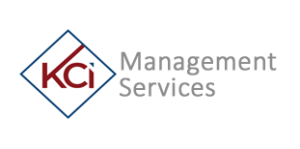Source: Inc.
By: David Brown, Founder and co-CEO, Techstars
Rome wasn’t built in a day. You can’t expect to build a successful startup without a lot of attention either. In January, you probably said your company would reach a specific profit margin, a certain number of employees, or some other seemingly realistic goal. Now, it’s the end of the year, and your startup is nowhere near where you imagined it would be.
I’ve started three companies and was an early employee in two others. One, unfortunately, didn’t make it. It’s okay to not meet every goal as long as you know how to approach failure to turn it into success. One of the worst things you can do as a struggling startup is set the same unrealistic goals each year and continue to fail. If you didn’t ace 2017, you need to delve deeper into your company, setting goals.
Here are four New Year’s resolutions for all struggling startups:
1. I will learn when to say “yes” and when to say “no.”
I’m a firm believer that entrepreneurs should never take “no” for an answer, but that doesn’t mean entrepreneurs should say “yes” to everything that comes their way. Before you jump into an opportunity, you have to determine whether or not pursuing it will drive your company in its desired direction.
Just because an opportunity is there doesn’t mean it’s there for your benefit. Look behind every open door before jumping through the prettiest one — appearances aren’t everything.
At my previous startups, there were so many temptations to take quick revenue. My first company created software to dispatch ambulances, but we were offered contracts to adapt for vending machines, mobile diagnostic companies and even riverboat captains. We didn’t always say no, but we should have.
2. I will work smarter not harder.
On the outside, it makes sense that working 80 hours a week would double your productivity as opposed to working 40. This isn’t necessarily the case.
According to a study by John Pencavel of Stanford University, employee output is proportional to hours worked until they reach about 50 hours a week. The study shows that by the time an employee reaches 70 hours, he or she is equally as productive as an employee working 15.
Take this to heart and set a goal to maximize your productivity by limiting your work time to 50 hours a week. This will also help you prioritize your activities as to what you can squeeze into an allotted schedule and what may not be as important.
Everyone has different rhythms, but mine is to make sure I get some good rest and relaxation time. I don’t work all weekend, and I take 2-3 weeks every year completely off of the grid — no email, no texts and no calls.
3. I will hire employees whose fundamentals support my company’s mission.
An employee with 20 years of experience means nothing if his or her vision doesn’t align with your company’s. It’s not enough to ask potential employees, “Why do you want to work here?”
Behavioral interviewing techniques can help you attain a deeper understanding of how employees think. This technique proposes that skills are not as valuable as how someone attained and uses them.
Next time you interview a potential employee, ask them: “Recall a time you had to work on a team with conflicts of interest. How did you get the job done?” or “What would you do if you ran out of time on a deadline?”
Questions like these provide you with answers to evaluate how a potential employee might use his or her skills to benefit your company. You company is only as strong as its weakest link, so set out to hire only the strongest candidates.
At Techstars, one of our core values is #givefirst — we encourage our employees and accelerator startups to give before they ask — and we interview heavily for that characteristic in others.
4. I will invest in my own success.
When your startup doesn’t meet its goals, it’s natural to feel like you are the problem, and it’s likely you’ll neglect self care for the sake of your company. The truth is, no company can function without a strong leader at its head.
Instead of taking your company’s failures out on yourself, take some time to make yourself a better person and a better leader. Punishing yourself will do nothing for your company, but investing in your personal success will equip you with better leadership skills.
In my case, that’s taken many forms: I’ve taken classes, I’ve paused to learn from others, I make sure that I remember that I don’t have all of the answers.
The first steps to reevaluating your startup’s success involve setting goals to strengthen the foundation. Here’s to a fruitful 2018!






